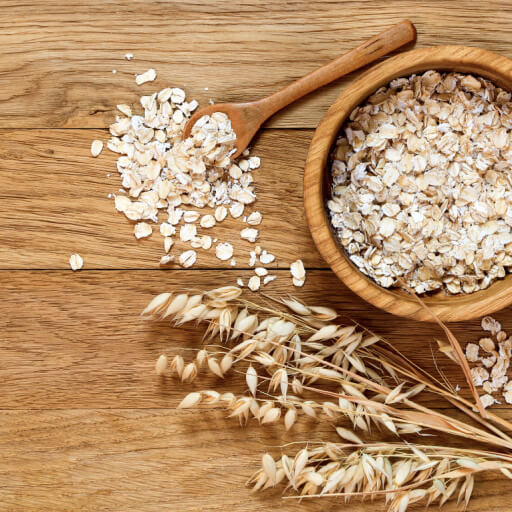Mango, the king of fruits, is one of the most popular summer fruit. They are sweet and juicy, and they come with several health benefits. Different types of mangoes have their textures, characteristics and taste. You can now find mangoes anytime during the year in your local grocery or fruit shop.
What you need to know:
- Overview of the key nutrients found in mango
- Health benefits of mango
- Incorporate mango into a balanced diet for overall health
Overview of the key nutrients found in mango
 Mango or Mangifera indica are tropical fruits about as large as grapefruits. The skin color of mangoes can range from yellow, green to red-yellowish green. They are rich in vitamins, nutrients and antioxidants that can benefit your health. For example, the vitamin K present in mango can strengthen your immunity, helps your blood clot effectively and prevent anemia. Another one of the health benefits of mango consumption is enhancing your bone strength. In addition, mangoes are also rich in vitamin C, which is vital for the production of healthy blood vessels and collagens.
Mango or Mangifera indica are tropical fruits about as large as grapefruits. The skin color of mangoes can range from yellow, green to red-yellowish green. They are rich in vitamins, nutrients and antioxidants that can benefit your health. For example, the vitamin K present in mango can strengthen your immunity, helps your blood clot effectively and prevent anemia. Another one of the health benefits of mango consumption is enhancing your bone strength. In addition, mangoes are also rich in vitamin C, which is vital for the production of healthy blood vessels and collagens.
Mango nutrition facts
Here are some of the mango nutrition facts that might interest you!
Approximately one cup (165 grams) of mangoes provides:
- Calories: 99
- Sugar: 22.6 grams
- Carbohydrates: 24.7 grams
- Fat: 0.6 grams
- Fiber: 2.6 grams
- Vitamin C: 67% of the required daily intake
- CopperL 20% of the required daily intake
- Vitamin B6: 12% of the required daily intake
- Vitamin A:1-% of the required daily intake
- Potassium: 6% of the required daily intake
- Riboflavin: 5% of the required daily intake
Health benefits of mango
Here are some of the benefits of mango consumption on a daily basis:
Mango’s antioxidant properties
Mangoes are full of compounds with antioxidant properties, like mangiferin and gallotannin. They are known to counter oxidative stress. The mangiferin present in mango is good for your heart. It can lower your blood sugar levels, triglycerides and free fatty acids.
Immunity-boosting properties of mango
Mangoes contain vitamin C and A, which allows our bodies to absorb iron and helps form and repair new cells. Vitamin A is vital for our body’s immune system to be active. People with low vitamin A levels are often linked with more risk of infections.
Mango’s fiber content and its role in digestion
It’s not surprising that mangoes are rich in fiber and other amylase compounds. These compounds and polyphenols offer anti-inflammatory and antioxidant properties to your digestive system.
Mango’s low calorie and high fiber content
One serving of fresh mango (165 grams) contains less than 100 calories, which is very low for the volume of the food consumed. Mango’s high fiber content can also help you manage digestive complications like diarrhoea and constipation.
Incorporate mango into a balanced diet for overall health
 Full of vitamins, minerals and antioxidants, mangoes are associated with several health benefits like improving the immune system, digestive system and eye health. However, it’s important not to consume too much mangoes as it contains a fair amount of natural sugar. Consider limiting your mango intake to a maximum amount of 330 grams per day.
Full of vitamins, minerals and antioxidants, mangoes are associated with several health benefits like improving the immune system, digestive system and eye health. However, it’s important not to consume too much mangoes as it contains a fair amount of natural sugar. Consider limiting your mango intake to a maximum amount of 330 grams per day.
Mangoes are usually considered safe for everyone, considering the benefits of mango consumption. However, people with diabetes should avoid consuming mangoes as it can spike their blood sugar levels. Consult your doctor if you experience allergies.
Stay tuned to the Activ Living Community. Keep up to date with the latest health tips and trends through expert videos, podcasts, articles, and much more in nutrition, fitness, mindfulness, and lifestyle conditions like Asthma, Blood Pressure, Cholesterol, and Diabetes.
You may also be interested in the following blogs:
- The Great Mango Debate: Is This Fruit Safe For People With Diabetes?
- What Are Phytonutrients? And How A Colorful Diet Will Help You Stay Healthy?
Popular Searches
How to lower blood pressure | Fruits good for liver | Unhealthy foods | Ragi Benefits | Basal Metabolic Rate | Acupressure points for High Blood Pressure | Ayurvedic medicine for blood pressure | How to control cholesterol at home | Homeopathy for Asthma | Biological Age | Home remedies for TB | Natural beta blockers | Negative effects of internet | Types of walking | Blood pressure calculator | Blood sugar calculator | BMI Calculator





 1800-270-7000
1800-270-7000








